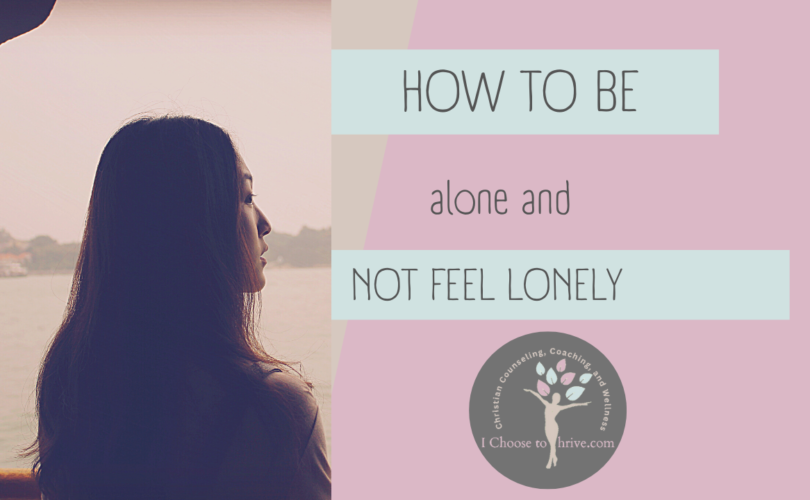Choosing solitude can be a rewarding experience. This is the time we could put some gas in our emotional tanks by giving room to uninterrupted time with our thoughts. Solitude provides an opportunity to problem solve and make plans. Projects can be worked on and creativity can be expressed. Having time to be present and in the presence of God can be absolutely golden. Sometimes choosing to be alone is better than being with someone that will drain your tank; exchanging the opportunity of solitude for the disconnected presence of someone else.
Then there are, however, other times in which we really want meaningful connections and being alone was not chosen or welcomed. This is when solitude becomes lonely. Loneliness is an emotional response resulting from negative thoughts about being alone. Negative thoughts such as, “I have no one who cares,” or “No one likes me or gets me.” Even self-deprecating thoughts can increase the feelings of loneliness and even lead to depression. If I could sum it up and simplify the difference, I would say that solitude is a state of being, whereas loneliness comes from the state of your thoughts.
You can change your feelings of loneliness into moments of welcomed solitude by doing the following:
- Be aware that most people will feel lonely at times, it is normal.
- Consider what you appreciate about yourself.
- There are some people that share your same interests. Start engaging in those things you enjoy increasing the chances of you finding like-minded individuals.
- Don’t make the assumption that people are too busy for you, reach out.
- Be good company to yourself, but not focusing on negative thoughts.
- The feeling of loneliness, as with other emotions, is what I say is a good “attention-getter.” It let’s us know what changes need to be made in our lives. This could be a blessing in disguise; something great could be waiting for you on the other side of this.
- And finally, it is a great opportunity to spend time connecting to God who will “never leave your nor forsake you.”





